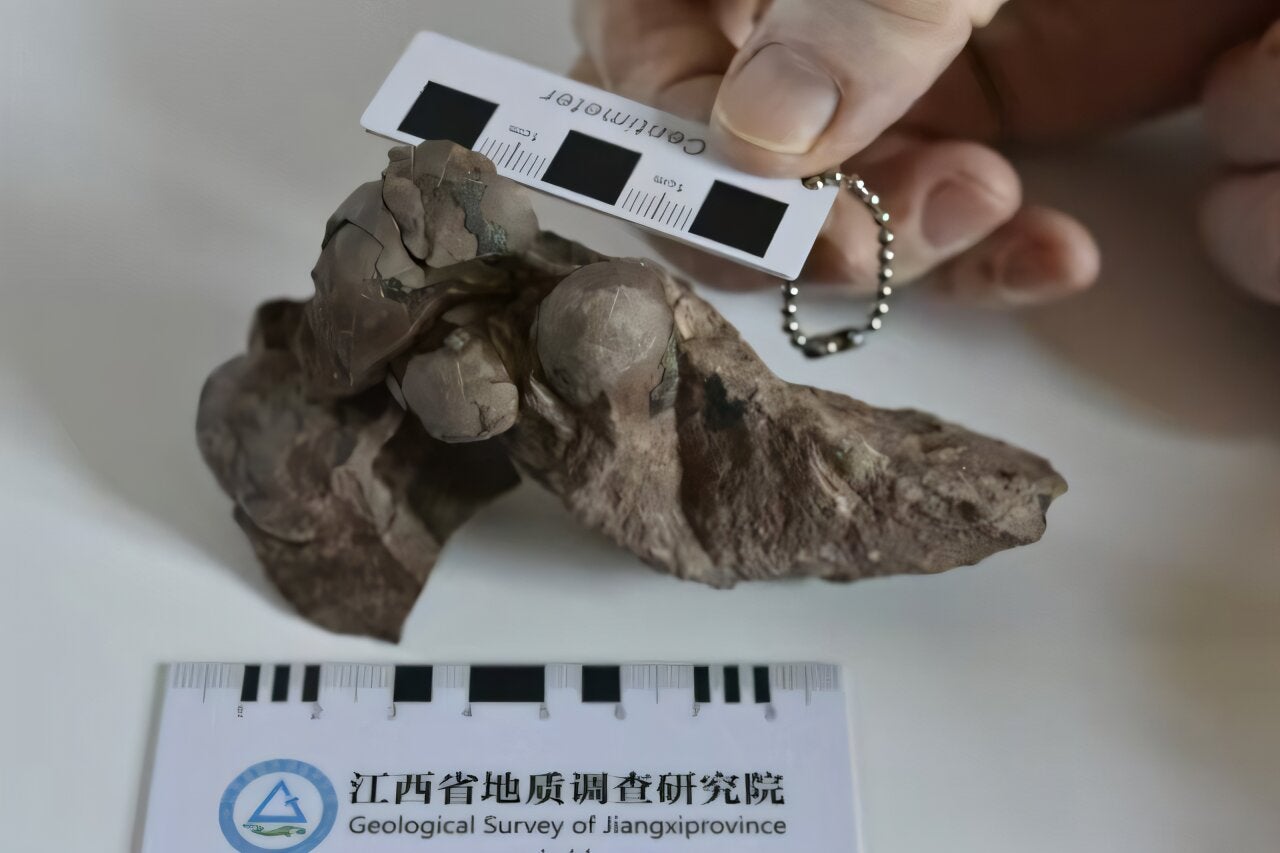Scientists say fossil dinosaur eggs unearthed at a construction site in China are the smallest ever found, providing new insights into the evolution of the extinct reptile.
The six eggs, fossilised into a lump, were discovered in 2021 in China’s Ganzhou region, which boasts one of the richest deposits of fossilised eggs from a range of ancient reptiles including dinosaurs.
But the fossil eggs found previously in the region were relatively large in size.
After three years of analysis, scientists obtained the overall image of the small eggshells found in 2021 and the fossilised creatures inside them.
The analysis, detailed last week in the journal Historical Biology, confirms that the creatures in the eggs are dinosaurs that roamed the region around 80 million years ago during the Late Cretaceous era.
“We report a partial egg clutch with six complete small eggs from the Upper Cretaceous Tangbian Formation of Ganzhou City,” the study says.
The smallest of the eggs is only about 29mm in length. The previously known smallest dinosaur egg was about 45mm by 40mm by 34mm.

The thickness, pores and other features of the eggshells from 2021 are unlike those of any other known for this class of dinosaurs.
This suggests they were laid by a new species from the group of four-legged dinosaurs called theropods. “The egg morphology and eggshell microstructure support it to be the smallest known non-avian theropod egg up to date,” the new study states.
The eggs are now classified in a new category called Minioolithus ganzhouensis, named after the Chinese city they were found in.
“This discovery increases the diversity of dinosaur eggs in Late Cretaceous and is significant for our understanding of the evolution of theropods in the Late Cretaceous,” the study notes.
Researchers plan to continue studying the site where the fossil eggs were found to understand the nature of the dinosaur that laid them as well as how these dinosaurs built their nests.















